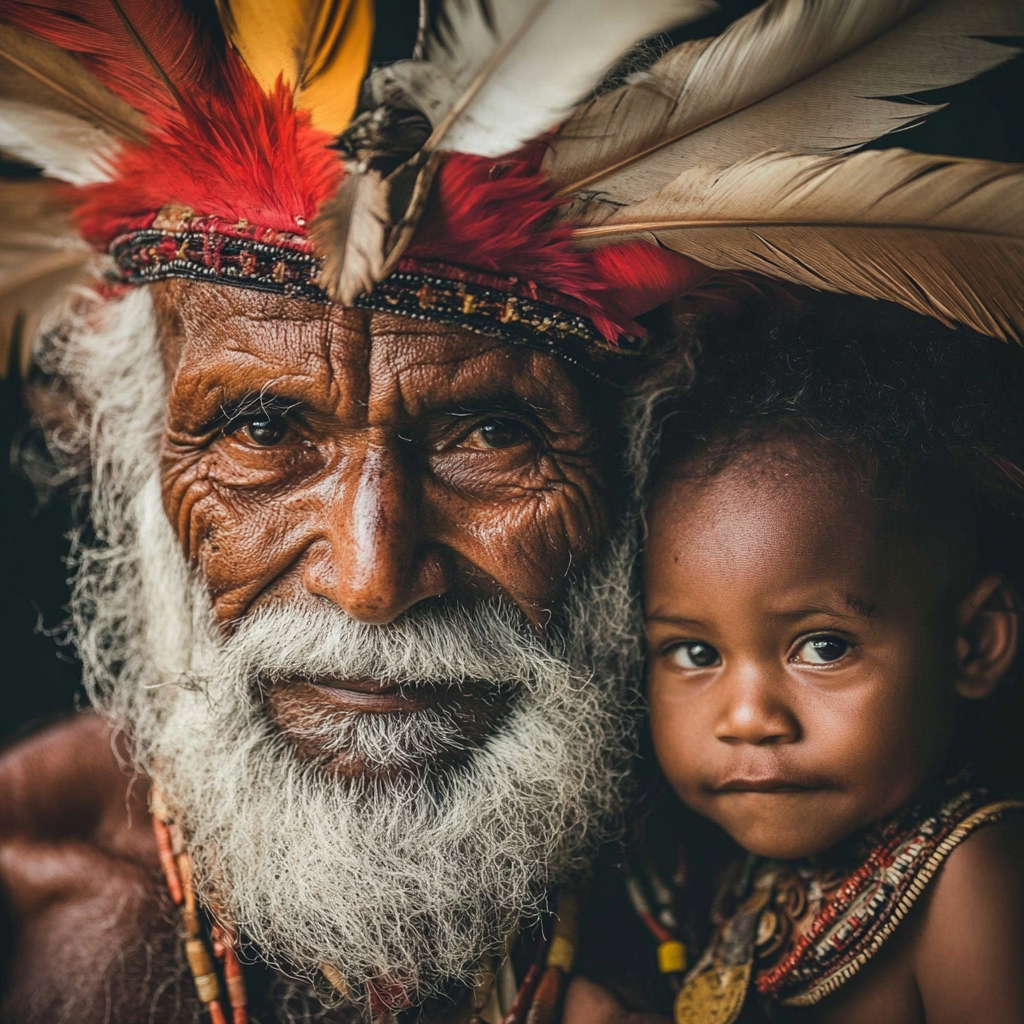Papua New Guinea – a country of unique culture and traditions, which has more than 800 ethnic groups and languages. Here, cultural and social customs play a vital role in daily life, and understanding local etiquette can make guests’ stay more enjoyable and respectful. Familiarity with the traditions and rules of behavior will help travelers establish friendly relations with residents and gain a deeper understanding of the unique cultural heritage of Papua New Guinea.
How to Greet Locals: Basics of Communication and Greetings
Greetings in Papua New Guinea may vary depending on the region and specific community, but in most cases moderate greeting and respectful treatment are universal rules. When meeting with residents, it is best to use a simple handshake or head nod, avoiding unnecessary physical intimacy. Locals appreciate a calm, friendly approach, and a smile here speaks louder than words.
It is important to remember that greetings may be more formal when meeting with elders or community leaders. In such cases, a greeting gesture or a respectful nod will be sufficient. Travelers are advised to first observe the locals to get a sense of the community’s greeting patterns and, if possible, follow their lead. By showing respect through simple gestures, you can quickly build positive relationships and get genuine responses from locals.
Visiting villages and communities: rules of behavior and respect for traditions
When visiting villages and communities in Papua New Guinea, it is important to adhere to certain rules to demonstrate respect for local culture. Here are a few key points to consider:
- Ask for permission. When visiting a village, it is always important to first obtain the consent of the elder or leader. This shows respect for their territory and role in the community.
- Take off your shoes. In some communities, it is the custom to remove shoes when entering a house. Check this point to follow local traditions.
- Keep quiet. Local residents prefer calm behavior and conversations in low tones. This creates a respectful atmosphere and shows your commitment to understanding their culture.
- Respect personal space. In rural areas and communities, people may be more closed off to physical contact and personal space. Try to avoid touching unless clearly necessary.
By following these simple rules, guests can make their visits to villages and communities comfortable and avoid awkward situations. Remember that the village is not just a place to live, but a space where each resident has a role, and violation of established norms of behavior can be perceived as disrespect.
Gifts and exchange: what is important to know about local gift exchange customs
A tradition exchanging gifts has special meaning in Papua New Guinea and is a symbol of respect and appreciation. Locals appreciate gestures of attention from guests, and small gift when visiting a village or meeting with community leaders will be appreciated. Gifts can be simple, but it is desirable that they have practical value. For example, household items, stationery or small souvenirs from your country.
It is important to remember that gift giving should be unobtrusive and not demonstrative. It’s an act of respect, not a way to impress. When giving a gift, it is better to use both hands, which symbolizes sincerity and the desire to establish friendly relations. In turn, local residents often give small symbolic souvenirs or treats as a sign of reciprocal gratitude, as part of the traditional exchange of gifts.
Interaction with culture and art: how to behave at holidays and ceremonies
Traditional celebrations and ceremonies are an important part of Papua New Guinea culture and participating in them can be an unforgettable experience. When attending such events, it is important to respect rules of conductso as not to violate established standards. For example, in some ceremonies guests are expected to reserved behavior and respect for what is happening. Avoid loud conversations and refrain from taking photographs without permission, as this may be perceived as disrespecting tradition.
Many holidays include folk dances and rituals in which the entire community takes part. Travelers are advised to observe what is happening and not to intervene unless invited to participate. Dressing should also be modest, especially if the event has religious significance. Following these recommendations will allow you to enjoy the holiday, learn more about the culture, and create a positive impression of yourself among local residents.
Personal space and communication: features of communication with residents of Papua New Guinea
When communicating with Papua New Guineans, it is important to consider personal space, since the country’s culture respects the distance between interlocutors. This means that close physical contact and gestures such as hugs or pats on the shoulder may be perceived as an invasion of personal space. It is recommended to limit yourself to calm gestures and avoid unnecessary touches.
You should also maintain a polite and respectful tone when speaking. In Papua New Guinea, calmness and courtesy are highly valued, especially when dealing with older people or elders. Local residents tend to be reserved, and this is important to take into account when communicating. By being sensitive and attentive to detail, tourists will be able to establish friendly relations with local residents and show their respect for their culture and customs.
When traveling through Papua New Guinea, it is important to remember that respect for traditions and customs is the key to understanding with the locals. Compliance with etiquette and simple rules of behavior will allow tourists not only to learn more about the culture of the country, but also to gain the trust and friendly attitude of the locals. This will not only make the trip more comfortable, but will also open the door to a unique experience of communication and exchange of cultural traditions.
Gifts are welcome and may include useful household items. This gesture shows respect for the hosts, but it is always important to check local customs before visiting.
When meeting, it is better to use a simple handshake or a greeting nod, avoiding unnecessary physical proximity.

